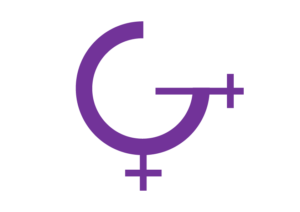Title: GENDERS
ID project: 2017-3-BE04-KA205-002183
Working dates: 01.03.2018-29.02.2020
Partner list
- AEGEE Europe
- UNSA Spain
- E-Romnja
- Futuro Digitale

It is apparent that in many fields gender gap is a fact, such as labour, rights enjoyment, social discriminations, political participation etc. Gender inequality has been at the core of discussion of European Commission since 2006 with the Roadmap for equality between women and men and in 2016 with EU Plan of Action on Gender Equality and Women’s Empowerment in Development. The growing gender violence among young people (WHO data: over 10,000 deaths in one year in Europe), particularly millennials, require a deep understanding of the phenomenon, while implementing innovative practices in terms of preemption in youth working through digital practices and countering-hatred approach.
Plus, the presence of new challenges in terms of digital education as well as intercultural issues, also due to the refugee massive incoming, gender as autonomous theme of discussion has partly lost its track and its impact in terms of public opinion. As youth trends with reference to gender roles and growing sexual violence, particularly in the cyber-space, are becoming a structural situation, there is a strong need in radically change such a situation investing in high quality youth working.
However, empirically, many associations treat gender issues more as an add-on to their work, rather than a structural issue. This means that gender matters are reduced to a simple ratio balance (e.g. how many men/women are involved in a training course), or how the concrete accommodation of participants is arranged or about special courses aimed at ‘solving’ the issue. Differently, gender must mainstreamed, which means to understand the role of youth workers and how project/activities design, educational activities, implementation, monitoring, attitudes/approach determine the overall gender discussion among youth organisations.
The focus on young people is also to break the stereotype about the automatic open-mindedness of youth who often ignore or are not prepared enough to counter stereotypes or gender roles, substantially repeating existing models.
The project “GENDERS” aims at favouring the gender mainstream approach within youth organisations supporting them to detect their grade of ‘gender-friendliness’ through an ICT tool converting input data (e.g. a questionnaire) into a measurable outcome expressed in a synthetic graphic indicator, giving practical advice in how to better gender planning/implementation/evaluation within youth organisational work, and setting youth working standards for “gendertrainers”.
The ICT tool will be integrated into a web-platform offering also support from problem identification, awareness and creative solution ideas for collective decision-making, as well as new practices to be included in youth working activities in the technical features of an e-learning environment. What is more, best-practice sharing and multiple learning mobility of youth workers & youth from different youth organisations, will lead one to create a viable and easy-to-read handbook to be released in order to be a practical reference for other organisations willing to repeat the applied methods and to mainstream gender in their everyday activities.
Specific objectives:
- Train youth workers and youth leaders and develop their competences in gender-mainstreaming through simplified ICT tools developing a Step-by-Step Framework (SFF) and an Open Badges System (OBS) to be tested/complete through three specific training sessions during the project life time;
- Support local projects in gender-mainstreaming, concretely supporting organisations in ameliorating their approach and their projects, involving youth workers/leaders/youth who do not necessarily support gender causes.
- Create a web-platform thought to be as a learning room hosting an interactive online step-by-step web tool to guide in a simplified way youth workers/leaders/organisational staff/etc. in learning how to deploy a gender-mainstreaming plan where they can train/consult FAQ/orienteer better. Learning qualification will be issued through Open Badge System after the completion of the free educational video units.
The project is supported by four partners coming from Belgium, Spain, Italy and Romania, committed to create a sort of movement in recognising gender-friendly organisations through a sticker to put on their office doors after having accessed to the GENDERS platform.
The need for a shared European work can also create the momentum for institutional awareness to facilitate the job in terms of gender themes, trans-gender and minority women rights.
